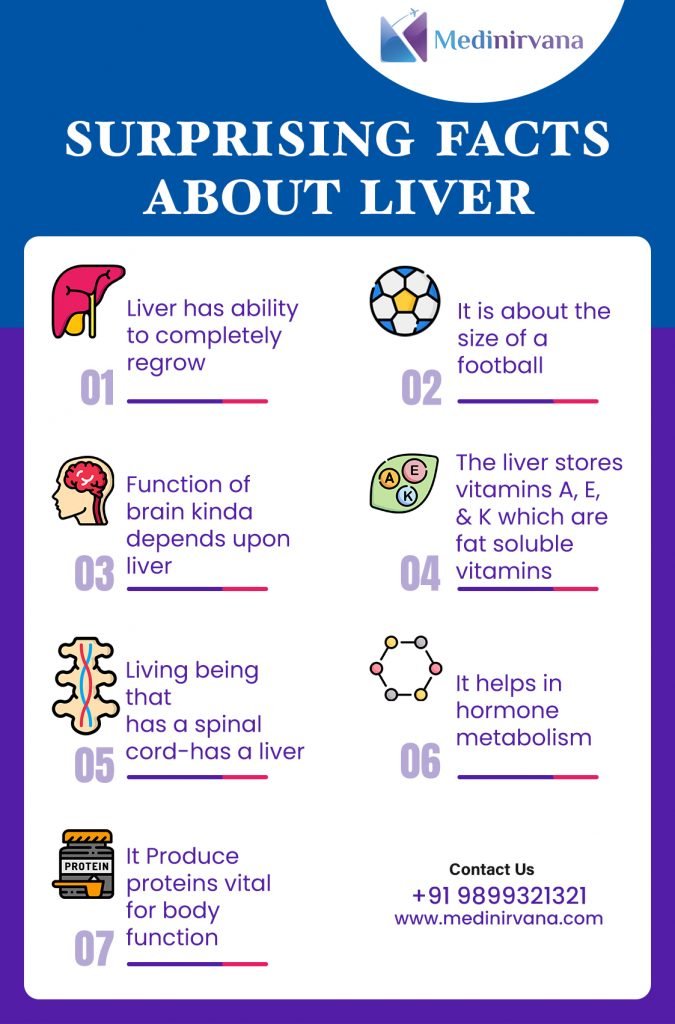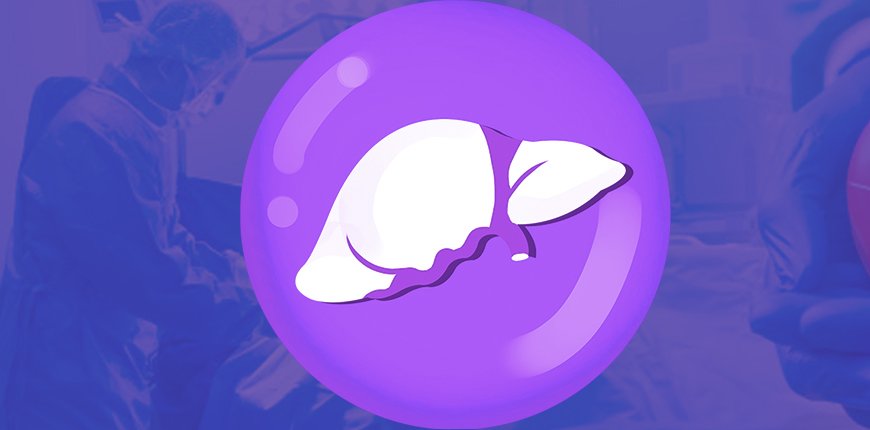Hepatitis C is an infection of the liver that is caused by a virus of the same name, the hepatitis C virus. The disease has wide-ranging severity with some patients having a mild disease that typically lasts for some weeks to other patients having a lifelong illness.
Hepatitis C is a blood-borne infection and can be transmitted through transfer of a small volume of infected blood. This can occur through sharing IV needles with infected people, transfusing infected blood products, or through unprotected sexual contact with an infected person. Chronic Hepatitis C infection can lead to cirrhosis and liver cancer, which require a liver transplant for definitive treatment. According to WHO, about 71 million people all over the world suffer from chronic Hepatitis C infection.
In this article, we will discuss Hepatitis C and liver transplant. All the risks, benefits, complications, and the advantages of having your liver transplant in India will be discussed.
Table of Contents
Feel free to skip ahead if one topic catches your eye:
- How does Hepatitis C Virus affect the Liver?
- Hepatitis C and Liver Transplants
- Preparing for your liver transplant in India
- What to Expect after Liver Transplants?
- Risks factors after Liver Transplants
- Why should you choose India for Liver Transplant?
Take Away
-
How does Hepatitis C Virus affect the Liver?
Hepatitis C Virus (HCV) attacks the liver cells and causes inflammation in the liver. This inflammation produces free radicals which cause damage and kill the liver cells. The early symptoms of the disease are mild but if the ongoing inflammation and death of the hepatocytes continue, a significant number of cells are killed. This leads to a chronic infection resulting in the development of the following symptoms:
- Easy bleeding
- Easy bruising
- Fatigue
- Poor appetite
- Yellow discoloration of the skin and eyes (jaundice)
- Dark-colored urine.
- Itchy skin (pruritis)
- Accumulation of fluid in your abdomen (ascites)
- Swelling of feet (Edema)
Any Hepatitis C infection lasting from a few weeks to 6 months, is termed an acute infection. HCV infection continuing for more than 6 months is a chronic infection. Without proper diagnosis and treatment, this ongoing infection can lead to liver cirrhosis and possibly hepatocellular carcinoma (liver cancer).
The Hepatitis C Virus gains entry into the liver cells through the blood and starts causing inflammation in the liver. The disease slowly progresses in the liver in a few stages.
- Stage 1 or Inflammation
- Stage 2 or Fibrosis
- Stage 3 or CIrrhosis
- Stage 4 or End-Stage Liver Disease (ESLD)
- Stage 5 or Hepatocellular Carcinoma (HCC)
Stage 1 or Inflammation
This is the first stage of liver infection. During this, the virus invades the cells and causes the body’s immune system to cause inflammation in the liver which in turn leads to a swollen or an enlarged liver in the patients.
Stage 2 or Fibrosis
Due to the death of the hepatocytes, fibers start replacing these dead cells. And thus, fibrous or scar tissue develops in the liver replacing the normal, healthy tissue.
Stage 3 or Cirrhosis
With continuing death of the liver cells, large amounts of liver tissue are replaced by fibers. As a significant part of the liver is damaged, now the liver is unable to perform its normal functions and symptoms start worsening in the patients.
Stage 4 or End-Stage Liver Disease (ESLD)
In this stage, the damage to the liver has reached a point where it can no longer be reversed by treatment. The only definitive treatment for ESLD is a liver transplant.
Stage 5 or Hepatocellular Carcinoma (HCC)
This stage of development of unhealthy, aplastic (cancerous) cells can occur at any stage of the infection. However, patients suffering from cirrhosis and ESLD are at an increased risk of developing liver cancer.
-
Hepatitis C and Liver Transplants
Liver failure caused by hepatitis C is one of the most common conditions that require a liver transplant. A liver transplant helps the patient live a better life as compared to living with a diseased liver. Not getting a liver transplant in a timely manner can even lead to the death of the patient.
But one thing to keep in mind is that in most people the virus exists in the bodies throughout their life. This can lead to reinfection in the transplanted liver as well. Reinfection after liver transplantation is universal and chronic liver disease develops in at least 70% of patients in 3 years. This infection usually occurs at an accelerated rate as compared to the original liver.
Despite this occurrence of reinfection, patients undergoing liver transplants have significantly improved quality of life. According to some studies, the following are the survival rates of patients.
- The survival rate for 1 year after liver transplant – 84%
- The survival rate 5 years after liver transplant – 60%
- The survival rate 10 years after liver transplant – 56%
3.Preparing for your liver transplant in India
A liver transplant is a major surgery and you should be mentally and physically prepared for the procedure. Once your doctor has advised you for a transplant and you have made your mind to get the transplant done, there are certain things that you should do to prepare for your surgery.
This is a long and cumbersome process with long and unpredictable waiting periods. Once you get a donor, the whole process of liver transplant can be started.
Your doctor will take your detailed medical history containing information about all the diseases that you are suffering from, all the medications that you are taking, any drug allergies you might have, etc. a physical examination will also be conducted for you. Some blood tests like your blood group and radiological investigations are also done. These investigations also help in establishing things like
- Cause of ESLD
- The severity of the disease
- Presence of any tumor
- The condition of other organ systems like the heart, lungs, kidneys, etc is also checked to make sure that the patient will be able to tolerate this major surgery.
Certain documents are also required for the procedure which includes, but are not limited to the following documents:
- Identity proof of the donor
- Documents confirming the relationship between the donor and the patient (if using a living donor)
- All the medical history and reports of the donor
- Medical visa
You need to have all these documents ready before you can go for the procedure.

4. What to Expect after Liver Transplants?
A liver transplant is a major surgery for your body. You will be kept for about 1 to 2 days in the ICU and then be shifted to a normal ward when your vitals are stable. You will be kept in the hospital for about 2 to 3 weeks to monitor your condition.
After your discharge, you will have to follow all of your doctor’s advice and take all your medications regularly. You will also be explained what signs to look for in case of development of any complications.
Apart from this, you will need a strong support system with you throughout the recovery process. You might get tired easily and will need help with your daily chores as well. Most patients take up to 2 to 3 months to recover fully from the surgery.
You will have to take extreme care of your incision wounds so that you can prevent any infection at the wound site. You should avoid taking baths or wetting your incision site. It is normal to have some pain or swelling at the site. But you should contact your doctor immediately if you suffer from increased pain, fever, or any discharge from the incision site.
You will have to continue having regular checkups after the transplant so that your condition can be regularly monitored. Also, you will have to keep taking certain medications throughout your life. Eating a healthy diet with minimal or no salt and oil is very important. Continue doing some form of mild exercise regularly for a better quality of life.
5. Risks factors after Liver Transplants
There are certain risk factors that make the patient more susceptible to catch infections after a liver transplant. These include the following risk factors:
- The underlying condition of the recipient such as malnutrition
- Co-morbidities like diabetes, obesity, COPD, renal failure, and dialysis
- Prolonged hospital stay and catheters before or after liver transplant
- Acute liver failure
- Recipient age
- Previous immunosuppression
- Previous infection (especially airway or urinary tract infections)
- A male recipient receiving male donor liver
6. Why should you choose India for Liver Transplant?
India has one the highest liver transplant success rates in the world. There are many other benefits for choosing India to get a liver transplant done, that will be discussed in this section.
- Skilled and experienced doctors and surgeons
- Best hospitality and infrastructure
- The hospitals in India use advanced, minimally invasive techniques to diagnose the particular disease and detect cancer
- Ease in Medical Visa
- Safety in covid situation
- Privacy
- No Language barrier
- Highest success rate
- Ease during the procedure
Skilled and experienced doctors and surgeons
India has the most skilled and qualified surgeons in the world. The doctors perform all the processes required during the liver transplant with great care and precision which increases the chances of having a successful procedure.
Best hospitality and infrastructure
The hospitals in India have one of the best infrastructures in the world and only use state of art facilities that help the doctors perform the liver transplant with great precision. The hospitals in India provide you with that infrastructure that will help you have a successful liver transplant.
The hospitals in India use advanced, minimally invasive techniques
With the help of highly skilled doctors and the best infrastructure, all the procedures are done in the most effective and minimally invasive way. This makes the whole process more comfortable for the patient.
Ease in Medical Visa
It is relatively very easy to get a medical visa for treatment in India. We, at Medinirvana, will help you get the medical visa and all the other necessary documents with ease so that you do not have to worry about all the formalities.
Safety in covid situation
We take all the necessary precautions and follow all COVID-related protocols strictly to safeguard you and your family members from the COVID virus. A liver transplant can be a life-saving procedure and hence can be necessary to do on an urgent basis. Given the COVID pandemic, you should also take care of wearing masks and maintaining social distance at all times to prevent your patient from getting infected at this point.
Privacy
Under doctor-patient confidentiality, none of your personal information or your medical history can be shared with anybody else. The information of the donor (if being used) will also be kept strictly confidential.
No Language barrier
All the doctors and their teams are well versed in written and spoken English and thus will allow the couple to have free communication with the doctor. Good communication is extremely important for the success of a liver transplant and you will face no language barrier at all in India.
Highest success rate
India has one of the highest liver transplant success rates in the world with the operative success rate being 86% and the 5-year survival rate being about 70%
Ease during the procedure
We will take care of all the documents and formalities. This will help you give your undivided attention to your patients and will help you focus solely on the surgery. We will ensure that the entire process is completely hassle-free and comfortable for you.
Take Away
This was a brief article sharing the details of a liver transplant and its success rates in India. For further information, contact a qualified professional who will be able to guide you better.
We, at Medinirvana, help you with all the technicalities and formalities of the whole transplant procedure so that you can stay focused on your patient’s treatment and recovery.








Leave a Reply